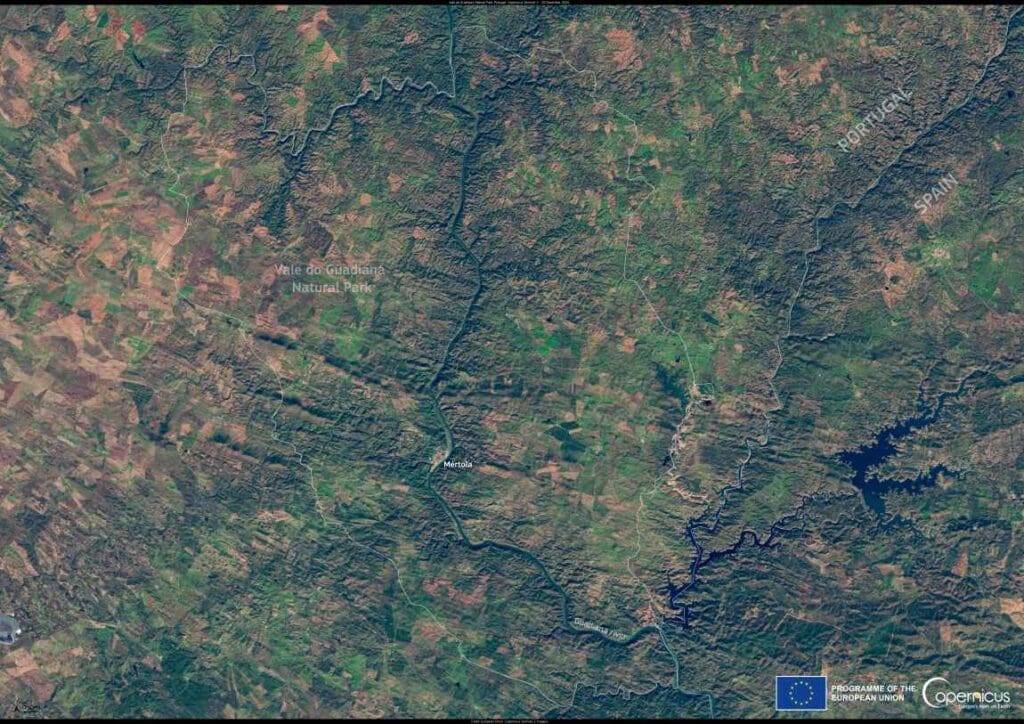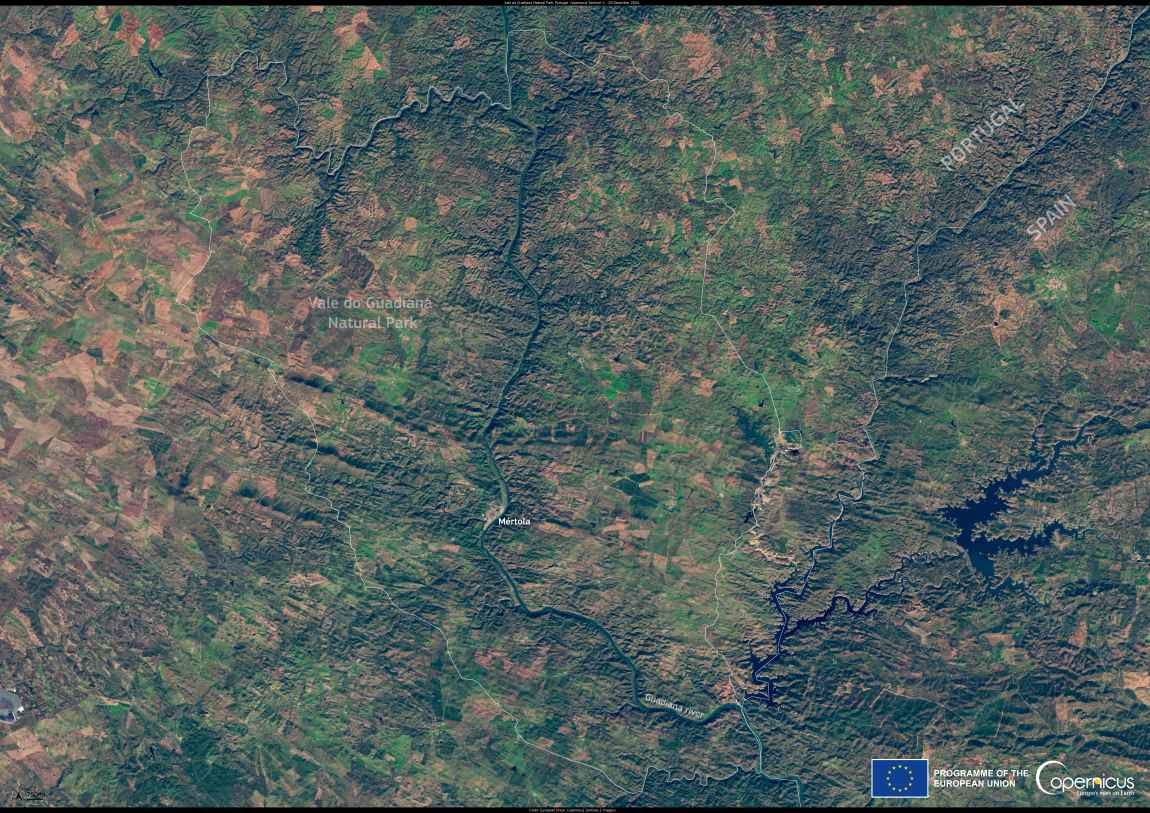In a remarkable conservation success story, the Iberian lynx population in Portugal has shown a dramatic recovery over the past decade. Focused efforts, including rewilding initiatives, recovery of key prey species, and the establishment of wildlife corridors, have lifted the species’ status from Endangered to Vulnerable.
Captive breeding programs in Portugal have played a pivotal role, bolstering numbers and enabling the lynx to reclaim territory across the Iberian Peninsula.
By 2024, the Iberian lynx population in Portugal had grown to approximately 300 individuals, a significant rise from the brink of extinction just 15 years earlier.

The species is now concentrated in the Vale do Guadiana Natural Park, located in the Algarve region. This region is highlighted in a striking image captured by the Copernicus Sentinel-2 satellite on December 29, 2024.
The Sentinel satellites are vital for monitoring ecosystems, offering high-resolution imagery and data to guide conservation strategies. These tools not only document the progress of species like the Iberian lynx but also help ensure the preservation of their habitats, supporting long-term ecological stability.
Featured image credit: European Union, Copernicus Sentinel-2 imagery




